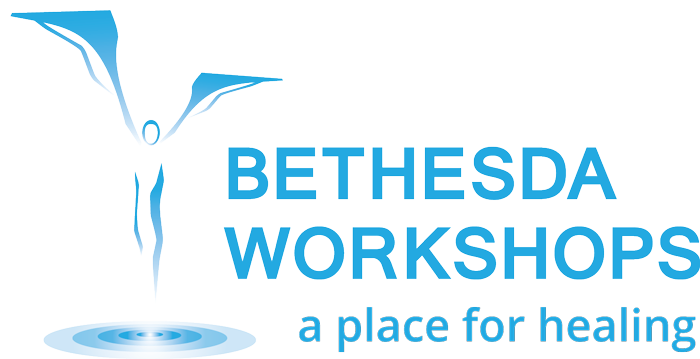After you get past the crazy toilet paper hoarding, the coronavirus is perhaps making better people out of most of us. In a mustering of individual and collective unity on a scale that many alive have never seen before, Americans and others across the world are metaphorically joining our washed hands in an amazing communitarian spirit. National https://www.nbcnews.com/tech/tech-news/communities-rally-around-each-other-google-docs-bring-coronavirus-aid-n1164126 and local https://www.unitedwaynashville.org/covid-19 examples of positive response to the COVID-19 crisis are heartwarming.
Needy out-of-school children are being provided meals, including in some creative ways like delivering them to school bus stops for those who don’t have safe transportation to get to the school or are prohibited from going because of stay-at-home mandates. Strangers are getting groceries for the elderly and those with a compromised immune system. In many cases, technology, which too often has inadvertently contributed to a weird sense of isolation, is now providing a lifeline.
More important on a national scale, we are shutting down our normal lives for the majority in order to protect the fragility of those whose health or advanced age makes them especially susceptible to this deadly virus. We are foregoing our normal work and leisure routines in a hopeful effort to avoid further overwhelming a healthcare system already scrambling for needed care-providers’ protection and for treatment equipment for patients.
In the midst of the anxiety, economic ramifications, and, for some, unfathomable grief at the loss of a loved one to COVID-19, a surprising shift is happening: We’re realizing that we’re all in this out-of-control situation together, and we desperately need each other. Indeed. Maybe it’s taking a global pandemic to remind us of a core truth about humankind – that God made us for relationship.
Three professors of sociology at the University of California in Los Angeles are calling for an important adjustment to the now-familiar term “social distancing”: using physical distancing instead. https://www.cnn.com/2020/03/21/opinions/physical-distancing-menjivar-foster-brand/index.html These sociologists emphasize that the necessary call for “social distancing” is really a plea for increasing the physical distance between people. They worry that the seemingly innocuous term may inadvertently contribute to the isolation, exclusion, and loneliness that can easily accompany forced withdrawal from normal interaction. They write, “When we practice physical distancing, we need social connectivity and social responsibility more than ever.” I couldn’t agree more.
During this global crisis, we’re finding how very much we need social connection, and humans are getting creative about how to manage it in the time of six feet of separation. In Italy and other places in Europe, people are taking to their balconies to sing or dance. Large families who aren’t able to gather as normal are spreading out across a front yard to sing Happy Birthday to a loved one standing on the porch. Groups unable to meet in person, including faith communities, are meeting online. People may not be in physical contact, but they see and hear each other, which by itself boosts oxytocin, an important bonding hormone.
As a mental health professional, I’m grateful for the increased emphasis on staying connected while we’re staying apart. Along with the important medical updates on COVID-19, television and online reports are full of suggestions about ways to engage with others. It takes a lot more intentionality for sure.
Voice-to-voice and sight-to-sight connection is crucial for humans’ wellbeing. Texting or Facebook messaging is convenient, but it’s no substitute. If you’re one of the millions required to stay at home, make a phone call (yes, gasp, an actual phone call) to someone every day. Better yet, have a video connection. A simple “in person” chat via Facetime or some similar app, maybe with a shared cup of coffee or glass of wine, can do wonders to provide support and encouragement.
Be especially mindful of the elderly or those who live alone. My almost 103-year-old mother-in-law got an iPad about three or four years ago. It took some doing to teach her about apps and tapping and scrolling – just imagine teaching someone who has never used any technology beyond a manual typewriter – but she loves connecting through Facebook. It’s especially helpful now that visitors are limited to two family members for her safety.
My beloved women’s support group is moving our weekly meeting online to include and protect two of our group whose husbands are immunocompromised. Bethesda is working to offer information and support virtually while we have to take a break from holding our intensive workshops. It’s time to use technology to connect, rather than to distance us.
For those in recovery from addiction, especially the intimacy disorder of sexual addiction, it’s vital that we continue to participate in support group meetings. All the major S fellowships https://www.bethesdaworkshops.org/resources/12-step-groups/ have phone and online meetings. Dr. Rob Weiss’s organization Sex and Relationship Healing https://sexandrelationshiphealing.com/your-own-sexual-behavior/weekly-webinars/ has a large number of free groups that are moderated by volunteers, including some men associated with Bethesda Workshops. In The Rooms http://intherooms.org/ also has hundreds of weekly meetings for all types of addiction.
There’s no reason to feel all alone during these stressful times. Connection helps, even when it’s not in person. I admit, though, there’s simply no substitute for the hugs.
Marnie C. Ferree
